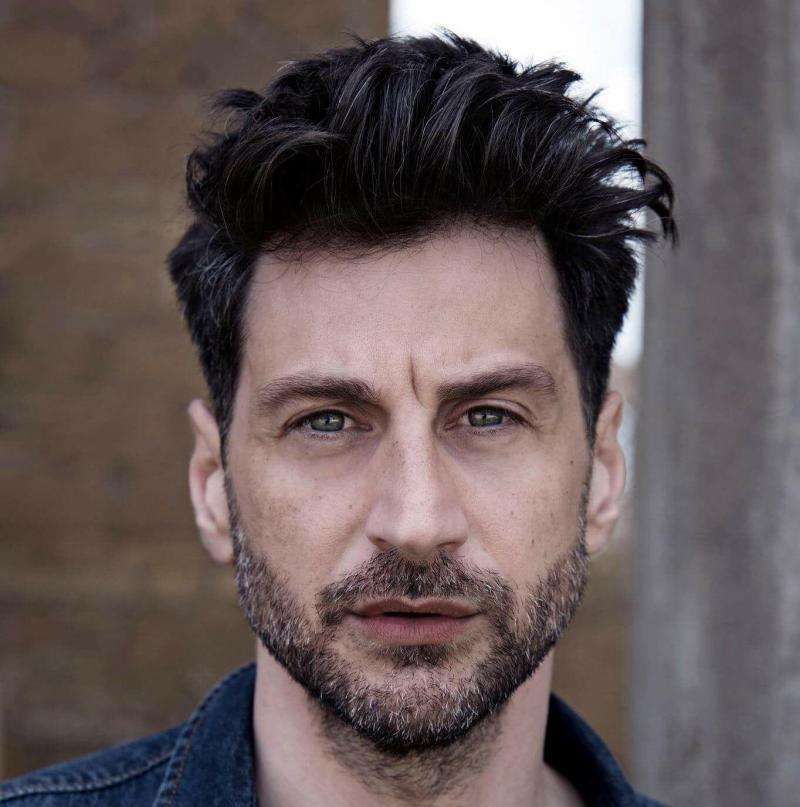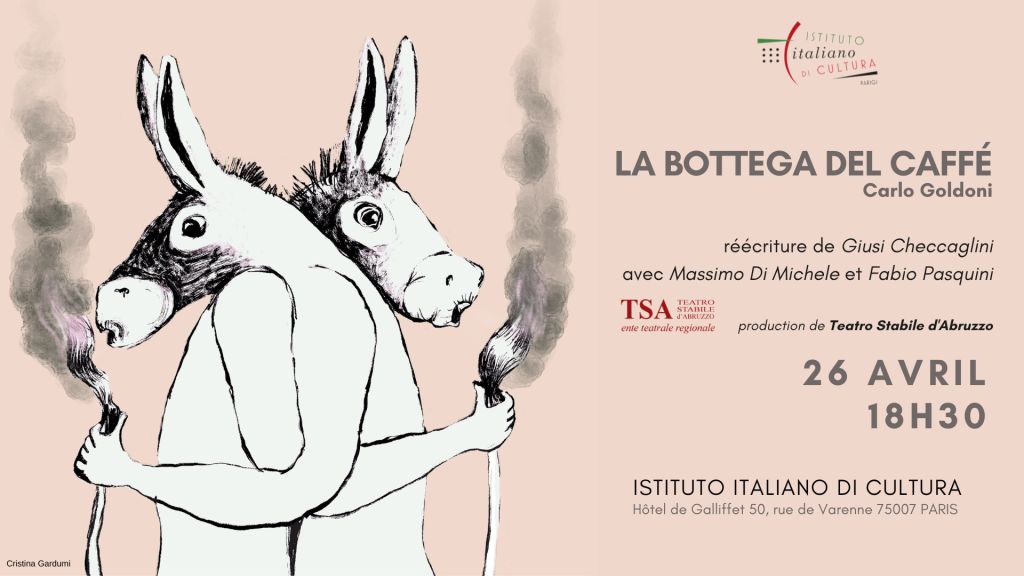The new Teatro Stabile d’Abruzzo show “La bottega del caffè” debuts in Paris in the splendid headquarters of the Italian Cultural Institute on Friday 26 April at 6.30 pm.
Goldoni’s famous text is here rewritten by Giusi Checcaglini, is interpreted by Massimo Di Michele and Fabio Pasquini and sees the light at the end of an artistic residency desired by the Director of the Institute Antonio Calbi.
“I am happy with the debut of this particular version of “La bottega del caffè” in such a prestigious setting as the Italian Cultural Institute in Paris, my bet – says Giorgio Pasotti, Director of the Building – is to bring the TSA back to center stage Italian and beyond, we pay more and more attention to international collaborations and partnerships and I am increasingly convinced of the attention we owe to classical theatre, to the immortal texts that have represented and continue to represent foundations and pillars of the artistic and cultural history of our country. One of the cornerstones of my Artistic Direction of the TSA works precisely on the new possible languages to bring the new generations closer to the “repertoire”. A job that repays us with the presence of many young people at our shows.”
“It is always so difficult, almost “embarrassing”, to write notes on a journey that you have yet to experience… So I try to imagine what this journey will be like in the company of a pillar of the Theatre, Carlo Goldoni – writes Massimo di Michele who also takes care of the direction – Goldoni is a strong choice because it poses a non-trivial difficulty: approaching a classic text, a canon of Italian theatre, supported by a deeply theatrical texture and language, and at the same time returning a contemporary reduction of it, without betraying its content. But the category of the classic, in reality, lends itself well to rereading operations.
The true classic is not crystallized in a remote and limited era, but projects its themes and solutions into a perennially contemporary dimension, perfectly adaptable to the most varied cultural and social panoramas. From this perspective, Professor Checcaglini’s reduction dissects and recomposes the plot, focusing the rewriting on the two Goldoni archetypes of the Serious and the Facetious. It is an almost sartorial synthesis, which working on the noble fabric of Goldoni’s text, identifies new plots, stitches them together in the voice of the only two actors who populate the scene, inserts remnants of other styles and literary traditions, ranging from Plautus to Molière, up to Dostoevsky.
Like an invisible silk thread, the rewriting reweaves the original text, embroiders it with contaminations, transforms it into a new and surprising text, dresses the solid Goldonian theatrical machine, leaving its expressive force intact. War, peace, social relations, trade, the original themes of the work, come back to life contemporary in the rewriting.
They flow through the texts to which the two actors give voice. Two characters who, freed from any strong temporal connotation, could be the two from Waiting for Godot or Endgame. Or any two people, abstract entities that pass through time. My intent is to, following the intent of the textual rewriting, blur the temporary placement of the original text, create a perception of continuity between the dynamics of the story and those of the contemporaneity we live in. A tale, a story, which takes place in the 18th century, but in which we can recognize ourselves, a story of men and unchanged human mechanisms, free from the time of narration. In this temporal rarefaction, even space and scene blur their features.
They are made up of perceptions rather than objects. The smell of coffee, the clattering of cups, the conversation. A few emotional brushstrokes in an emptied, timeless scenic space. On the physicality of the actors, I intend to work to create a synthesis between a gesture that recalls the classicism of Goldoni’s text, but which opens up to the expressive fluidity of contemporary theatre. The production process of the representation will be based on these ideas.
In any case, it is a starting point, which will be enriched by the unpredictable alchemy that is established between the actors and the text, whose evolutions, as in every creative process, constitute a precious and unique material that will relive on the stage .”




Tags: TSA debuts Paris Coffee Shop









